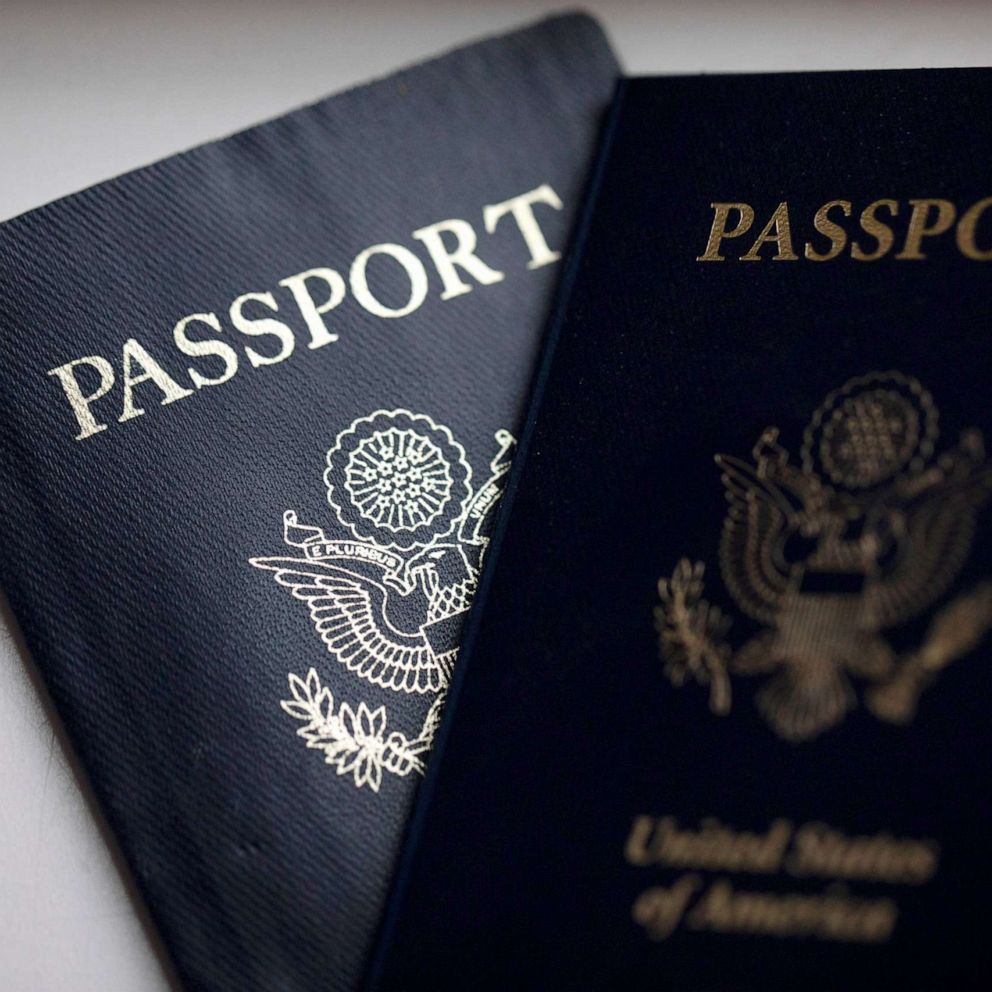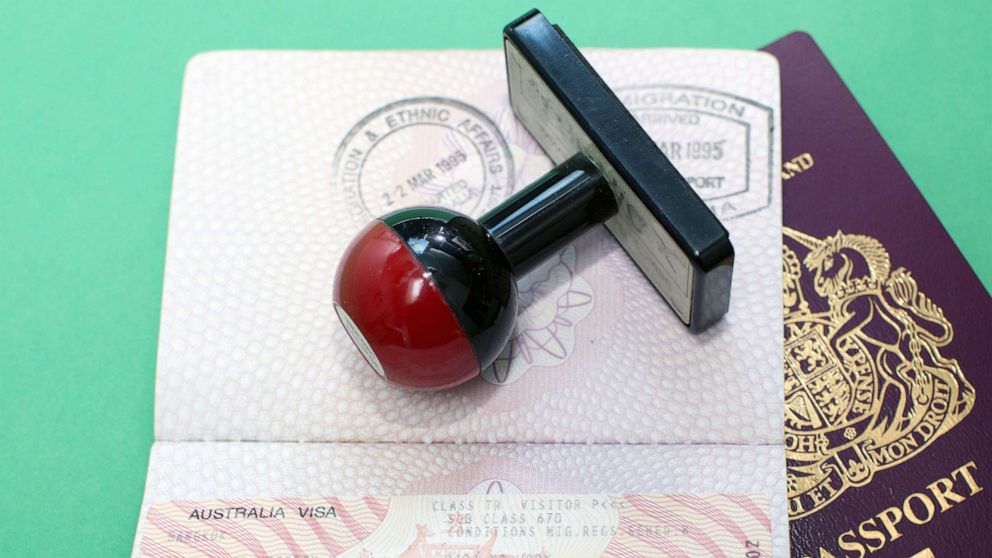Explained: How are Europe's travel rules changing after February 1?

Jan 26, 2022 • 5 min read

The EU is set to make changes to its digital COVID cert rules © Getty Images
The rules of travel are changing for European Union (EU) citizens and residents in February. For those with a valid EU digital COVID certificate, exploring the continent is about to get easier.
On Tuesday, the EU agreed to a "coordinated approach to facilitate safe free movement" across Europe by lifting restrictions for people with a valid EU digital COVID certificate. This means that EU citziens with a valid cert (proof of vaccination, a recent negative test or recovery) shouldn't face restrictions such as quarantine or testing upon arrival in another EU destination.
Additional testing requirements can remain in place for people who are unvaccinated or who are not up-to-date with their booster vaccine schedule.
"This recommendation responds to the significant increase in vaccine uptake and the rapid roll-out of the EU Digital Covid certificate, and replaces the previously existing recommendation," a statement from the European Council says.

Clément Beaune, Secretary of State for European Affairs of France, said that the idea is to take a person-based approach when setting out restrictions, rather than focusing on the country they are coming from.
"It is so we are much more focused on the individual situation of people—vaccinated or unvaccinated—rather than on the epidemiological situation of this or that country or region of the EU, with it being important to have more restrictions for people who are unvaccinated," Beaune told reporters on Tuesday.
In addition, on February 1, the EU is shortening the validity of vaccine status in the COVID certs to nine months (at most) since a person’s last dose. Here's a breakdown of the latest rule changes.

What is an active EU digital COVID cert?
The EU digital COVID cert allow EU citizens and residents to easily present their vaccination status to travel within the bloc during the pandemic. According to the EU Council, "travelers in possession of a valid EU digital COVID certificate should not be subject to additional restrictions to free movement".
To keep it active, you'll need to get a booster if more than nine months has passed since your last recommended dose of a primary vaccine schedule. That is nine months after your second shot of an mRna vaccine (Pfizer, Moderna or AstraZecenca) or nine months after a Johnson & Johnson vaccine. If you've recovered from the virus, you'll need a booster nine months after your first and only shot.
Without a booster, you can take a negative PCR test within 72 hours of traveling or a negative antigen test within 24 hours.
People can also keep it active with a certificate of recovery, provided that no more than 180 days have passed since the last positive result.
Why is there a nine-month time limit on the current certs?
The nine-month time limit applies to vaccination status only and "takes into account the guidance of the European Centre for Disease Prevention and Control (ECDC) on the administration of booster doses as of six months, and provides for an additional period of three months to ensure that national vaccination campaigns can adjust and citizens can have access to boosters," the European Commission said last month.
What about children?
Children under 12 are generally exempt from needing a digital COVID cert to travel without restrictions under EU guidelines.
Will every EU country follow the same rules?
When the certs were introduced in June last year it was up to member states to decide how long to accept the vaccination certs for travel, but the new rule on validity is supposed to be binding on all 27 EU member states following sufficient support for it.
However, France is doing things its own way and requiring that people get their booster within seven months of their last dose (or two months in the case of the Johnson & Johnson vaccine). From February 15, that timeframe will be reduced to four months.
Malta is also going a step further by requiring people receive their booster within three months of their last shot.

Do I need a new EU digital COVID cert for travel?
The rules come into effect on February 1 and many governments have already begun issuing citizens with new certificates to include their booster shot information. Those who haven't received a booster shot but who had their last jab within the past nine months will still be permitted to use their current vaccination certificates for travel. Those who are unvaccinated can continue to travel by taking a negative COVID-19 test.
Is the new certificate required to enter venues?
As well as allowing people to present their vaccination status for travel, many member states require the certificates from people to gain access to restaurants, gyms and many other venues across Europe.
The new rules on the validity of the passes only affect how they're used for travel, it's up to individual countries to decide if they want people to be up-to-date with their booster shots before being granted entry to certain venues.
Though some countries, such as France, have already agreed that people who are eligible for booster shots will need to get one in order to validate health passes that are used to access restaurants, cafes, museums and public transport.
"The new rules on the acceptance period of vaccination certificates apply for the purposes of travel. When introducing different rules to use the certificates at national level, member states are encouraged to align them to these new rules to provide certainty for travellers and reduce disruptions," the EU Commission has said.
Do non-EU travelers need a booster to be considered fully vaccinated for travel in the EU?
The new rules only apply to the European member states signed up to the EU digital COVID certificate program for the purposes of intra-EU travel. It's up to each country to determine their own entry rules for visitors from outside the bloc.
For more information on COVID-19 and travel, check out Lonely Planet's Health Hub .
You might also like: Explained: What do France's proposed new health pass rules mean for tourists? England drops COVID-19 tests for vaccinated arrivals - here are the latest travel rules Traveling to the Canary or Balearic islands in Spain? Here’s what to expect
This article was first published Nov 25, 2021 and updated Jan 26, 2022.
Explore related stories

Art and Culture
Jun 3, 2022 • 6 min read
It’s hard not to have a marvelous time in this Mediterranean island nation. Here are a few tips to make your trip to Malta even better.

May 16, 2022 • 4 min read

May 10, 2022 • 4 min read

Apr 29, 2022 • 2 min read

Apr 1, 2022 • 4 min read

Mar 31, 2022 • 9 min read

Mar 2, 2022 • 6 min read

Feb 14, 2022 • 2 min read

Feb 3, 2022 • 3 min read

Jan 21, 2022 • 4 min read

European Countries Are Again Changing Their Entry Rules
It’s another season of new travel regulations in europe, with some countries loosening requirements and others tightening them. but one thing remains the same—it’s still confusing..
- Copy Link copied

On January 24, COVID vaccination became a requirement in France for entering establishments such as museums and restaurants.
Photo by Maurizio De Mattei/Shutterstock
By now, we’ve all gotten used to living in a world where travel rules and regulations change often. The timing of these changes has even become somewhat predictable as we ride the waves of pandemic surges and retreats. Case in point, after many countries in Europe tightened travel restrictions in December in the face of an Omicron variant-fueled surge in COVID cases, many are now either relaxing those entry rules and/or amending them to include, for instance, a booster requirement.
The latest round of regulatory updates, however, comes as the European Union is seeking to better streamline travel between member countries by basing entry requirements on a person’s COVID-19 vaccination or testing status rather than on where individuals are traveling to or from. If successful, the changes could move Europe toward more consistent, longer-lasting requirements rather than a revolving door of regulations that change with each ebb and flow of the pandemic.
The European Commission agreed Tuesday on a recommendation that would base entry on a travel certificate that indicates COVID-19 vaccination—vaccination status would be valid for nine months after the last dose of the initial vaccination series, after which an individual would need to get a booster shot for their vaccination status to remain valid. A negative COVID-19 PCR test no more than three days old or an antigen test taken within one day would also permit entry, as would a COVID-19 recovery certificate no more than six months old.
But each country in Europe ultimately has the final say on what its requirements are, and it remains to be seen whether there will be any sort of coordinated effort successfully enacted regarding pandemic travel policies. In the two years since the start of the pandemic, we have yet to see any consistency from European countries.
Instead, individual countries in Europe have again been updating their entry rules in recent days, and as we have seen in the past, they’re a bit, well, all over the place—some are more lenient and some are stricter than the previous round of updates. Here is a brief summary of some of the changes that have occurred in Europe of late.
European countries adding booster requirements
With the European Commission having agreed in December that COVID-19 vaccination status would be considered valid for up to nine months after the original series of vaccines and as booster campaigns gain momentum, we are likely to see more countries develop booster shot requirements for travel. Here are some examples.
Quarantine-free travel from the United States to Austria is allowed as long as travelers pre-register and present a CDC-issued vaccination certificate, as well as proof of a negative COVID-19 PCR test from within 72 hours of travel. Those who have received a booster shot do not need to provide a COVID test, nor do those who are fully vaccinated and have recovered from COVID-19 in the past 180 days. Unvaccinated travelers from the U.S. can still enter Austria but must pre-register, present a negative COVID-19 test upon arrival (a PCR test from within 72 hours of travel), and quarantine for five days and then present another negative PCR test, according to the Austrian government .
Vaccinated U.S. travelers can enter Spain , but effective February 1, those who were vaccinated more than 270 days prior to entering Spain will need to show proof of a booster shot. All travelers to Spain must fill out a Health Control form prior to arrival.
Countries that are making it easier to enter

With no testing requirement, the Emerald Isle is now among the easier European countries for Americans to visit.
Photo by Shutterstock
Earlier this year, Ireland dropped its requirement for a predeparture COVID test for vaccinated travelers. Fully vaccinated visitors will simply need a fill out a Passenger Locator Form before departure and provide proof of vaccination or proof of recovery from COVID-19 within the past six months. However, effective February 1, 2022, vaccine certificates will only be considered valid if they are no more than 270 days old or if travelers provide proof of having received a booster shot. Unvaccinated travelers must provide proof of a negative COVID-19 PCR test result from within 72 hours prior to arriving in Ireland.
Effective January 26, Norway has dropped its quarantine requirement for international arrivals . All U.S. travelers ages 16 and older, vaccinated or not, are now able to enter Norway as long as they complete an entry registration form no more than 72 hours before arriving in Norway, present a negative COVID test (PCR or antigen) taken no more than 24 hours prior to their departing flight for Norway, and then take a free COVID-19 rapid antigen test upon arrival at the airport in Norway. Children under 16 are not required to take a test before arrival but will be asked to take a test upon arrival. (An exception could be made “if it would be unreasonably difficult for them to take the test,” according to the Norwegian government.)
United Kingdom
On February 11, the United Kingdom is doing away with its COVID-19 travel testing requirement for fully vaccinated travelers. Instead, fully vaccinated travelers will simply be required to fill out a passenger locator form within 72 hours prior to arriving in the U.K. (versus the current 48 hours prior), confirming their vaccination status, travel history, and contact details. To be considered fully vaccinated, travelers must have completed their full one or two doses of an approved COVID-19 vaccine at least 14 days before arrival.
Additionally, unvaccinated arrivals will no longer be required to quarantine. Now they will need to present two COVID test results (either PCR or antigen)—one from within two days before traveling to the U.K. and one from just after arrival that must be booked and paid for in advance. All travelers under the age of 18 are subject to the same rules as fully vaccinated travelers, regardless of their vaccination status.
Countries that have made it a bit harder to enter

You can visit the Meteora Monasteries in Greece, but you’ll need to take a prearrival COVID test.
As of its latest update (dated January 22), the French government has placed the United States on its “red list” of countries, meaning that unvaccinated U.S. travelers cannot enter France unless they have an essential reason, and fully vaccinated travelers from the U.S. can enter France if they submit a health declaration form and a negative COVID-19 PCR or antigen test from within 48 hours of their departing flight to France. Previously, the U.S. was on France’s “orange” or “amber” list, and fully vaccinated U.S. travelers did not have to supply a negative COVID test.
Unvaccinated minors traveling from the U.S. are allowed to enter France, but those age 12 and older will have to show a negative PCR or antigen test taken within 48 or 24 hours, respectively, before their flight.
Additionally, on January 24, France’s Pass Sanitaire (or Health Pass) officially became a Pass Vaccinal (or Vaccine Pass), which is required to enter numerous establishments, including museums, cafés, restaurants, public transportation, and entertainment venues. Visitors can get the vaccine pass at pharmacies throughout the country and must show that they are fully vaccinated to obtain it. (Proof of a negative COVID test no longer cuts it after a new law went into effect this month making vaccination a requirement for the pass.)
Effective January 24, all travelers age five and older regardless of where they’re coming from or vaccination status, will need to present a negative COVID-19 PCR test from within 72 hours prior to arrival (or a rapid test from within 24 hours before arrival) to enter Greece . Previously, a COVID test was not required for vaccinated travelers.
>> Next: What to Do if Your Travel Plans Are Disrupted by Omicron

- Share full article
Advertisement
Supported by
6 Things You Should Know About Traveling to Europe This Summer
Shifting flight schedules, varying hotel flexibility and new tech: A lot has changed since the last time you packed that passport.

By Sarah Firshein
After the recommendation on June 18 by the European Union that restrictions against nonessential travel be removed in its member states for visitors from the United States, both vaccinated and unvaccinated Americans could possibly travel to Europe this summer , making the masterpieces of the Louvre and the beaches of Sicily once again feel within reach. Here are six things to know if you’re planning a trip.
Flight schedules will be in flux for months to come
Because the United States continues to be closed off to international leisure travelers from most of Europe, making the travel between the two continents one-sided for now, aviation-industry experts say there won’t be a massive surge in Europe-bound flights from the United States this summer.
“Airlines require traffic from both ends of the route to operate sustainable services,” said John Grant, a senior aviation analyst at OAG, a travel data and insight provider.
Until the U.S. borders reopen to European tourists, Mr. Grant added, “the situation remains broadly unchanged for the airlines.”
On May 10, according to OAG data, airline schedules showed fewer than 2.5 million seats on flights heading from the United States to Western Europe in July. By contrast, more than 4.5 million flight seats went from the United States to Europe in July 2019.
Still, airlines are introducing new routes and resuming paused service. American Airlines and Delta Air Lines have resumed direct flights to Greece , while American has added a new summer route from New York City to Athens. Delta and United will launch nonstop service from New York City to Dubrovnik, Croatia, in early July. Delta restarted service to Iceland in mid-May, and United will begin flying from Chicago to Reykjavik on July 1.
Additionally, United plans to resume flights to Spain and Portugal in July, Air France has tentatively scheduled the launch of its Denver-Paris route for July 2 and JetBlue will start its first-ever trans-Atlantic route, from New York City to London, on August 11.
Flight schedules are almost certain to change as summer rolls on. According to Transportation Department rules, if an airline cancels or significantly changes a flight, passengers are entitled to cash refunds.
A good bet, Mr. Grant said, is to “look first at travel to those cities with a high frequency of service, perhaps at least twice daily, since those destinations with just one daily flight or less than daily services are likely to be the more vulnerable services for short notice cancellations.”
For those who decide to proactively bow out of a trip, most airlines, including American, United, Delta and Air France, are continuing to waive most change fees for classes above Basic Economy, although the fare difference would apply.
Onboard, you’ll brush elbows with strangers, but you won’t go hungry
In recent months, daily passenger numbers have been generally inching upward, according to the latest Transportation Security Administration stats , and long gone are the days of empty planes and blocked middle seats. Delta, the final holdout, stopped the practice in early May.
Serving food and drinks, which most airlines paused or scaled back in some way last year, is also back, and many other elements of flying will feel similar to how it did before the pandemic. Yes, Air France is still serving fresh bread, wine and cheese, but there are also zeitgeist-y new flourishes to look forward to on other airlines, including spiked seltzers from Truly offered on American and White Claw on United.
Certain pandemic-era changes designed to minimize touch-points persist. To keep the aisles and galleys clear, many airlines are now asking passengers to wait for the “vacant” light before walking to the restrooms. In Delta One business class, pre-meal drinks have been eliminated, and beverages will come with meals. Delta has also introduced tap-to-pay technology for onboard extras. But even on planes where contactless payments are not available, keep a credit card within reach: Many airlines don’t accept cash.
Finally, although mask mandates are loosening across the United States, passengers ages 2 and up are still required by law to wear masks on planes and in airports.
Hotel flexibility will vary, so read the fine print
Most of the large American-run chains have reverted to their pre-Covid cancellation policies for reservations made before a certain date (that has come and gone), and for travel through a certain date (that has come and gone). But some companies are still being flexible: Hilton has always had generous cancellation policies, and Four Seasons has been consistently easy about changes and cancellations during the pandemic.
Travel-industry insiders also have noticed flexibility among independent hoteliers.
“We’ve felt that small, family-run luxury properties are actually more nimble than some of the big hotel chains,” said Louisa Gehring, the owner of Gehring Travel , an affiliate of Brownell, a Virtuoso luxury travel agency. “Rather than lay off all their employees or point to an overarching corporate cancellation policy, they’ve had flexibility to keep the teams on, work with clients on a case-by-case basis and really step up to the plate.”
Policies vary by property, she added, but even some of the more rigid ones now include exceptions for Covid.
One thing to watch for is the credits-versus-refunds flash point: Even in cases when a hotel won’t swallow a deposit or prepayment outright, will you get a cash refund or will you be asked to rebook? Last year, Greece and Italy both passed laws allowing hotels and other travel companies to issue credits, rather than cash refunds, for canceled bookings. Although vaccines, the eagerness to travel and pandemic fatigue may make the idea of a credit less odious than it seemed last spring, always ask about policy specifics, including blackout and expiration dates.
Realize that Paris won’t look exactly like the Paris you remember
The Louvre and the Palace of Versailles are open , and nightclubs will open in July . But many of the go-to tourist destinations in Paris and elsewhere in Europe are or will operate with restrictions in place, including restricted occupancy levels and required mask-wearing. And the E.U. member states, not the bloc, ultimately decide what travel regulations , including testing and quarantines, to impose on visitors (The Netherlands, for example, continues to remain closed to nonessential travel.)
“Clearly, we will not come back to ‘normal’ straight away, and travelers will have to be conscious of health measures and respect rules at the destination,” said Eduardo Santander, the executive director of the European Travel Commission, a Brussels-based nonprofit that represents the national tourism boards across the continent. “We all — destinations, businesses and guests — cannot let the guard down too soon both for our own health and for the safety of people around.”
In short, any trip to Europe this summer will come down to managing expectations.
“Save the ‘must check all the boxes’ trip to Europe for a bit later, once all new protocol kinks have smoothed out,” Ms. Gehring said. But you may still have an unforgettable experience regardless.
“Travel is not a right; it’s a privilege, as we’ve all learned,” Ms. Gehring said. “Speaking Spanish with a local or eating homemade pizza in Naples — even if under new rules and restrictions — may elicit stronger feelings of joy and appreciation than expected.”
Prepare to schedule and commit, rather than wing it
Much like in the United States, most major European museums and attractions now require timed tickets in an effort to honor capacity limits and space out crowds.
That’s good news for anyone who hates waiting in line. But snapping a selfie with “The Mona Lisa” means planning. Timed tickets are usually nonrefundable and rain-or-shine.
Popular restaurants may also require advance reservations, especially for those committed to dining outside. Resy, which is owned by American Express, has expanded its international footprint over the past year; travelers can use the app or website to book top restaurants in the United Kingdom and around mainland Europe.
In previous years, Europe’s excellent rail system and inexpensive regional airlines made it easy to wake up in one country and decide, a few hours later, to visit another. Though that spontaneity might still seem appealing, there are also advantages to staying put.
“Instead of a breakneck itinerary that may include three days in London, three in Paris and five nights between Rome and Tuscany, a true deep-dive into one country allows for greater flexibility and less room for disappointment,” Ms. Gehring said. “Having four nights in Florence instead of two gives you twice as many chances to get that timed ticket at The Uffizi .”
Update your tech and tap into tech updates
Researching restaurant reservations and booking timed tickets could require either a good data plan, Wi-Fi or both. If it’s been a while since you’ve taken your phone overseas, research your wireless provider’s options so you are not slapped with expensive roaming charges. Several companies, including Verizon Wireless and T-Mobile, have per-diem travel passes that include unlimited data and texting, and certain calling benefits, in Europe. Or, just stick to free Wi-Fi. And be sure to bring a portable charger — many tickets and entry passes are digital.
Also take stock of the technology that has adapted alongside the pandemic, and how it can make traveling easier — and perhaps even a bit more enjoyable.
Uber Reserve, which launched in November and has recently expanded to London, Paris and elsewhere in Europe, allows users to schedule rides up to 30 days in advance. Uber Rent, also available in Europe, allows users to book rental cars from companies like Avis.
There are also several new travel-friendly bells and whistles from Google Maps. Updates set to be rolled out to Live View, the app’s augmented-reality mode, include overlaid street signs at difficult-to-navigate intersections. The app has also recently introduced more tailored maps that “know” when a user is at home or traveling: A London vacationer who fires up the app at noon, for instance, will see nearby lunch options as well as local tourist attractions.
Sarah Firshein is a Brooklyn-based writer. She is also our Tripped Up columnist . If you need advice about a best-laid travel plan that went awry, send an email to [email protected] .
THE WORLD IS REOPENING. LET’S GO, SAFELY. Follow New York Times Travel on Instagram , Twitter and Facebook . And sign up for our Travel Dispatch newsletter : Each week you’ll receive tips on traveling smarter, stories on hot destinations and access to photos from all over the world.
Because of an editing error, an earlier version of this article oversstated the extent of the travel restrictions that the United States is imposing on in-bound international leisure travel. The United States is prohibiting international travel from much of the world, including most of Europe, but not all of it.
How we handle corrections
Explore Our Style Coverage
The latest in fashion, trends, love and more..
FaceTime Calls With Mom: What started as a way for the filmmaker Josh Seftel and his mother, Pat, to stay in touch has become a popular feature on “CBS Sunday Morning.”
Breaking Mr. Beast’s YouTube Rules: Many creators bend over backward to optimize videos for the platform’s algorithm, but some are experimenting with another concept: trusting their audience .
Changing the Way We Party: When the siblings James and Alexa Hirschfeld started Paperless Post, some saw its digital invitations as a fad. Instead, they have become a fixture of events , even spawning imitators.
A Mahjong Tournament for the Young: Green Tile Social Club hosted its first tournament , where a younger generation gathered to play an old game and meet new friends.
Teen Boys Take on Cologne: Some Gen Z kids can’t seem to get enough of luxury fragrances that cost as much as $300.
‘Five Minute Journal’: Alex and Mimi Ikonn are the duo behind the popular journal , ubiquitous on night stands and on social media, that promotes gratitude.
New requirements for Americans traveling to Europe postponed until 2025

Americans eyed upcoming travel to European destinations slightly differently due to news of a requirement that was set to start in 2024 for U.S. passport holders. But now, EU officials have postponed the European Travel Information and Authorisation System ( ETIAS ) launch until spring of 2025.
SchengenVisaInfo.com, a website dedicated to the world's largest visa-free zone where 27 European countries abolished their internal borders known as the Schengen Area, first reported that an EU official confirmed ETIAS won't go live until May 2025, "due to continued delays with the introduction of the related Entry-Exit System (EES), which needs to be operational before ETIAS can be implemented."
An official for the European Union did not immediately respond to ABC News' request for comment.
What to know about ETIAS for US travelers
If you previously traveled to Europe without a visa, you will now need to apply for authorization through the ETIAS , before visiting.

Today, American travelers have visa-free access to 184 global destinations, according to the Henley Passport Index . And while the U.S. passport is currently ranked eighth-most powerful passport to own, that could be set to shift when the European Union adds its new documentation requirements for U.S. visitors.
The application form, which will be available on the official ETIAS website as well as a mobile application, has a fee of 7 euros or $7.79 U.S. dollars. All communication is done by email.
Once you are approved for travel, the authorization entitles visitors to stay in European countries that require ETIAS for up to 90 days within any 180-day period and travelers must be in possession of a valid ETIAS during their entire stay.
Related Articles
MORE: New warning issued for rebooking air travel after delays, cancellations
According to ETIAS, most applications should be processed within minutes, but in case an application takes longer, decisions will be sent within four days or up to 14 days if the applicant is asked to provide additional documentation.
The European Union encourages travelers to apply for an ETIAS authorization "well in advance of your planned journey."
Confirmation of application submission will be sent on email with a unique number that is needed for future reference.

Upon receiving ETIAS travel authorization, travelers are to ensure that their name, passport number and other information is correct because any mistake will prevent them from crossing the border.
If an application is refused, the email will include the reasons for the decision along with information about how to appeal.
ETIAS travel authorization is valid for three years, according to the EU, or until the travel document you used in your application expires, whichever comes first.
MORE: European heat wave breaking records with little relief in sight
The ETIAS authorization is linked to a person's travel document -- such as a U.S. passport -- and both documents will be needed to board a flight, bus or ship to enter any of the European countries that require ETIAS.
Similar to international border requirements with a passport, the ETIAS authorization doesn't guarantee automatic right of entry. "Border guards will verify that you meet the entry conditions" and anyone who does not meet the conditions "will be refused entry," according to the EU.
Click here to learn more about the process from the European Union.
An earlier version of this story was originally published on July 21, 2023.
Related Topics
Up next in travel—.

Royal Caribbean launches industry-first loyalty status match program for cruises

Travel the Yucatán Peninsula for less: Deals in Cancún, Playa del Carmen and Tulum

2 new giant pandas coming to the National Zoo from China

Private rides bookable this summer from Paris to Champagne with tastings, more Olympics-timed deals
Shop editors picks, sponsored content by taboola.
- Privacy Policy —
- Your US State Privacy Rights —
- Children's Online Privacy Policy —
- Interest-Based Ads —
- Terms of Use —
- Do Not Sell My Info —
- Contact Us —
© 2024 ABC News
Accessibility Links

EU Entry Exit System (EES) 2024: what will it mean for my holiday?
A new entry/exit system is set to be introduced at border crossings in the schengen area in october 2024. here’s what you need to know.

S ince the UK left the EU, there have been a number of significant changes for travellers , including additional validity requirements for passports and restrictions on the number of days you can visit EU member states without needing a visa. To enforce the latter, the EU plans to introduce the Entry/Exit System (EES), an automated IT system that will track border crossings. This should make entering and leaving the EU much easier and quicker for Brits, as it replaces the cumbersome manual checks. It’s now slated to be in operation by October 6, 2024, after the Paris Olympics. Here’s what you need to know.
What is the Entry/Exit System (EES)?

The EES is an automated IT system designed to track travellers from third countries, such as the UK, entering and leaving EU member states.
Since Brexit, UK passport holders are only permitted to stay in EU countries for a cumulative total of 90 days in a 180-day period without a visa or other permit. The EES will tally up this number each time a passport is used at border crossing and detect those who have exceeded their allowance; a refusal of entry is also detected.
To make this possible, the system will distinguish between short-stay visa holders and visa-exempt visitors through their travel document, and collate information such as name, type of travel document, biometric data (fingerprint and photographs) and the date and place of entry and exit. It will also work in conjunction with the Etias (the visa waiver required to travel to Europe) in future.
When will EES start?
The launch date is currently October 6, 2024, after the Paris Olympics.
Advertisement
Where is the ees required.
The EES will be in place for 25 of the 27 EU member states — Ireland and Cyprus will continue with manual checks — as well as Norway, Iceland, Switzerland and Lichtenstein, as they’re part of the border-free Schengen Area. Where EES is in place, you’ll just need to scan your passport at the automated gates, as you would when entering the UK.
Within the UK, EES gates will also be installed at the Port of Dover, and Eurostar and Eurotunnel terminals where passports are checked prior to travel.
What does EES mean for my travel?

In theory, it should speed things up at border crossings and make entry into and exit from EU countries much easier. For regular travellers, it should also mean more space in their passports as it won’t be stamped each time they make a border crossing.
However, the first time you use the EES, you will be required to supply your fingerprint and have your photo taken at the crossing, which will cause extra delays. This will then be kept on file for three years so you won’t need to do this extra step each time. If you refuse to supply this information, you’ll be denied entry.
Where might the worst delays be when EES launches?
The border checks at Port of Dover, and Eurostar and Eurotunnel terminals have the biggest potential for delays — an issue raised by operators based at these locations, based on the time it takes to process cars. The chief executive of the Port of Dover has warned that it could take up to ten minutes to process one car when the measures are implemented.
Passengers on Eurostar will need to arrive at the St Pancras station at least two hours before travel, in order to register fingerprints for the first time. At the moment, it advises arriving up to 90 minutes beforehand. Work is underway to install 49 entry-exits kiosks.
Once introduced, however, the EES shouldn’t be any more arduous than the passport checks that currently exist.
• Etias: the new entry form you will need to complete when visiting 30 European countries • When will airports lift the 100ml liquid rule?
Become a subscriber and, along with unlimited digital access to The Times and The Sunday Times, you can enjoy a collection of travel offers and competitions curated by our trusted travel partners, especially for Times+ members Sign up to the Times Travel newsletter for weekly inspiration, advice and deals here
Related articles

Cookies on GOV.UK
We use some essential cookies to make this website work.
We’d like to set additional cookies to understand how you use GOV.UK, remember your settings and improve government services.
We also use cookies set by other sites to help us deliver content from their services.
You have accepted additional cookies. You can change your cookie settings at any time.
You have rejected additional cookies. You can change your cookie settings at any time.
Register to vote Register by 18 June to vote in the General Election on 4 July.
- Passports, travel and living abroad
- Travel abroad
Travelling to the EU and Schengen area
You do not need a visa for short trips to the EU or countries in the Schengen area if both of the following apply:
- you’re staying for 90 days or less in a 180-day period
- you’re visiting as a tourist or for certain other reasons
Other reasons include:
- studying a short course
- getting medical treatment
- travelling for business for your UK employer, for example to attend a business meeting or conference
- journalism or other media activities
Check the entry requirements of the country you’re visiting to find out what you can and cannot do during your stay.
These rules do not apply to travelling and working in Ireland .
Travelling to countries in the Schengen area for up to 90 days in a 180-day period
You can travel to more than one country in a 180-day period. How long you can stay in each country depends on whether or not it’s in the Schengen area.
The countries in the Schengen area are:
Austria, Belgium, Bulgaria, Croatia, Czech Republic, Denmark, Estonia, Finland, France, Germany, Greece, Hungary, Iceland, Italy, Latvia, Liechtenstein, Lithuania, Luxembourg, Malta, Netherlands, Norway, Poland, Portugal, Romania, Slovakia, Slovenia, Spain, Sweden, and Switzerland.
Your total stay in the Schengen area must be no more than 90 days in every 180 days. It does not matter how many countries you visit. The 180-day period keeps ‘rolling’.
To work out if your stay is within the 90 day limit, use the following steps.
Check the date you plan to leave the Schengen area on your next trip.
Count back 180 days from that date to get the start of the 180-day period.
Add up the number of days you have already spent in the Schengen area in that 180-day period (you can use the dates stamped in your passport showing when you entered and left a country).
Work out how many days you will spend in the Schengen area on your next trip. Add this number to the number of days you worked out in step 3.
Check that the total number of days is not more than 90.
Travelling to Cyprus
Cyprus is not in the Schengen area. You can stay up to 90 days in a 180-day period in Cyprus without a visa.
Any time you spend in the Schengen area does not affect the number of days you can spend in Cyprus.
When you may need a visa
You may need a visa or permit if you want to either:
- stay for more than 90 days
If you’re travelling for work, check the rules for the country you’re visiting .
If you’re travelling for another reason or staying longer than 90 days, check the entry requirements for the country you’re visiting .
Related content
Is this page useful.
- Yes this page is useful
- No this page is not useful
General information
- Entry/Exit system is currently not in operation.
The Entry/Exit System (EES) is an automated IT system for registering non-EU nationals travelling for a short stay, each time they cross the external borders of European countries using the system (exemptions apply, see FAQ section ). This concerns travellers who require a short-stay visa and those who do not need a visa. Refusals of entry are also recorded in the system.
The main advantage of the EES is saving time. The EES replaces passport stamping and automates border control procedures, making travelling to European countries using the EES more efficient for the traveller.
The EES also makes it easier to identify travelers who have no right to enter or who have stayed in the European countries using the EES for too long. It makes it easier to detect travelers using fake identities or passports. Finally, the EES helps to prevent, detect and investigate terrorist offences or other serious criminal offences.
The EES applies to you if you are a non-EU national travelling to a European country using the EES for a short stay of up to 90 days within any 180 day period. It is important to remember that the period of 90 days in any 180 days is calculated as a single period for all European countries using the EES.

European countries using the EES

List of countries using EES
In Cyprus and Ireland, despite being countries of the European Union, passports are still stamped manually.
Why does the EES collect personal data?
The EES collects personal data provided by the traveller each time he or she reaches the borders of European countries using the EES and stores this information in the system together with the date and time of their entry or exit.
This makes border checks faster. It also makes it easier to identify travellers who have no right to enter, who have stayed in European countries using the EES for too long, or who are using fake identities or passports. The EES also collects and stores personal data to contribute to prevention, detection and investigation of terrorist offences and other serious crimes.
Conditions for collecting and storing personal data in the EES are set out in the Regulation (EU) 2017/2226 establishing the Entry/Exit System .
Information on the processing of your personal data in the Entry/Exit System
If you are a non-EU national travelling for a short stay (maximum 90 days in any 180-day period) to a European country using the EES, you will be provided with clear information in writing about the EES and your related rights at the border-crossing point.
Your data is collected and processed for the purposes of border management, preventing irregular immigration and facilitating the management of migration flows. This is required in accordance with Regulation (EU) 2017/2226 , specifically Articles 14, 16 to 19 and 23 of Chapter II and Chapter III of the Regulation.
What data will the EES collect?
The EES collects and records:
- data listed in your travel document (e.g. full name, date of birth, etc.)
- date and place of entry into and exit from a European country using the EES
- facial image and fingerprints (called ‘biometric data’)
- refusal of entry, where relevant
Please note that the fingerprint data of non-EU nationals who do not need a visa to enter the territory of European countries using the EES and holders of Facilitated Transit Documents will be stored in the EES. If you need a visa to enter the Schengen area, your fingerprints will already be stored in the Visa Information System and will not be stored again in the EES.
The system also collects your personal information, depending on your particular situation, from:
- the Visa Information System (which contains additional personal information)
- the European Travel Information and Authorisation System , in particular the status of your travel authorisation and, if applicable, your family member status
All this is done in full compliance with data protection rules and rights.
What happens if you refuse to have your fingerprints scanned or a photo of your face taken?
As a non-EU national travelling for a short stay, if you refuse to provide your biometric data, you will be denied entry into the territory of European countries using EES.
Who can access your personal data?
- Authorities in European countries using the EES such as border, visa and immigration authorities for the purpose of verifying your identity and understanding whether you should be allowed to enter or stay on the territory.
- Europol may also access your data for law enforcement purposes.
- Under strict conditions, your data may be transferred to another state (EU country or non-EU country) or international organisation (listed in Annex I of Regulation (EU) 2017/2226 ) (UN organisation, the International Organisation for Migration, or the International Committee of the Red Cross) for return ( Article 41(1) and (2) , and Article 42 and/or law enforcement purposes Article 41(6) ).
- Carriers will only be able to verify whether short-stay visa holders have already used the number of entries authorised by their visa, and will not be able to access any further personal data.
How long does the EES keep your personal data?
Your data will be stored in the system for the following durations:
- Records of entries, exits, and refusals of entry : 3 years, starting on the date on which they were recorded.
- Individual files containing personal data : 3 years and one day, starting on the date of your last exit record (or of your refusal of entry, if you were not permitted to enter).
- If no exit has been recorded : 5 years, starting on the expiry date of your authorised stay.
After each time period expires, your data is automatically erased.
As the fingerprint scans of travellers requiring Schengen visas will already be in the Visa Information System, they will not be stored again in the EES.
In the case of non-EU nationals who are family members of EU, EEA, or Swiss nationals who are travelling to a state other than the state of their nationality, or who already reside there, and who are accompanying or joining these EU, EEA, or Swiss nationals, each entry, exit, or refusal of entry record will be stored for one year following the date of the exit record or of the refusal of entry record.
How can you find out how much longer you can stay in European countries using the EES and what happens if you overstay?
You have the right to receive information from passport control officers on the maximum remaining duration of your authorised stay.
Once EES is operational, you will be able to consult an online tool available on the EES website and/or consult the equipment installed at the border crossing points (if available).
If you stay for longer than permitted, you will be identified as an ‘overstayer’ and your data will automatically be added to a list. Competent national authorities (passport control officers, immigration officers, staff issuing visas, etc.) can access this list.
If you are added to the list of overstayers, other consequences can apply depending on national legislation in place in the respective European country using EES (e.g. you may be removed from the territory; you may be subject to administrative fines or detention; you may be prevented from re-entering the EU in the future.)
If, as an overstayer, you provide credible evidence to the competent authorities, such as border authorities or immigration authorities, that you exceeded the authorised duration due to unforeseeable or mitigating circumstances (e.g. hospitalisation due to a serious injury), your data can be amended in the system and you can be removed from the list.
The calculation of the duration of the authorised stay and the generation of alerts to European countries using the EES when the authorised stay has expired do not apply to non-EU nationals who are family members of EU, EEA or Swiss nationals who travel to a state other than the state of their nationality, or already reside there, and are accompanying or joining the EU, EEA or Swiss national.
What rights do you have with respect to your personal data?
You have the right to:
- Request from the controller access to data relating to you
- Request that inaccurate or incomplete data is corrected
- Request that unlawfully processed personal data that concern you is erased and/or that the processing thereof is restricted
To exercise any of the rights listed in points (1) to (3), you must contact a data controller (e.g. the entity responsible for processing your data) or data protection officer in any of the European countries using the EES, preferably the ones to which you travelled.
You can find the relevant contact details for the European countries using the EES on this site (will be made available at a later stage) .
Where should you submit personal data-related complaints?
You can lodge a complaint with:
- The supervisory authority of the European country using the EES in charge of processing your data (e.g. if you believe that the country has recorded your data incorrectly). (The contact details will be made available at a later stage.)
- Frontex : the European Border and Coast Guard Agency hosts the central unit operating the European Travel Information and Authorisation System (ETIAS) relevant for the visa-exempt non-EU nationals
- European Union Agency for the Operational Management of Large-Scale IT Systems in the Area of Freedom, Security and Justice - eu-LISA : the European Union's Agency that through technology supports EU countries' efforts for a safer Europe
- Europol : the European Union's Law Enforcement Agency aims to achieve a safer Europe for the benefit of all the EU citizens
Lodging a complaint means that you can submit a formal request for a new assessment of your data protection rights, for instance, if your query to the data controller to access, delete or amend your data is refused.
Related links
Share this page
New Europe travel regulations
Starting from 2024, roughly 1.4 billion people from over 60 visa-exempt countries will be required to have an etias travel authorization to enter most european countries., july 23, 2023, what’s next for russia, what comes next after texas school shooting, what's next for abortion rights in america, the new battle for voting rights, how we can build a clean and renewable future, the fight for kyiv, examining extremism in the military, gun violence: an american epidemic, border crisis: what’s happening at the us-mexico border, remembering george floyd: a year of protest, the source of covid-19: what we know, how did the gamestop stock spike on wall street happen, why are people hesitant to trust a covid-19 vaccine, how climate change and forest management make wildfires harder to contain, disparity in police response: black lives matter protests and capitol riot, 2020 in review: a year unlike any other, examined: how putin keeps power, why don’t the electoral college and popular vote always match up, us crosses 250,000 coronavirus deaths, 2nd impeachment trial: what this could mean for trump, presidential transition of power: examined, how donald trump spent his last days as president, how joe biden's inauguration will be different from previous years, belarus’ ongoing protests: examined, trump challenges the vote and takes legal action, 2020’s dnc and rnc are different than any before, what is happening with the usps, voting in 2020 during covid-19, disinformation in 2020, abc news specials on, impact x nightline: on the brink, impact x nightline: unboxing shein, the lady bird diaries, impact x nightline: it's britney, impact x nightline: natalee holloway -- a killer confesses, impact x nightline: who shot tupac, impact x nightline, power trip: those who seek power and those who chase them, the murders before the marathon, the ivana trump story: the first wife, mormon no more, leave no trace: a hidden history of the boy scouts, keeper of the ashes: the oklahoma girl scout murders, the orphans of covid: america's hidden toll, superstar: patrick swayze, the kardashians -- an abc news special, 24 months that changed the world, have you seen this man.
National Geographic content straight to your inbox—sign up for our popular newsletters here

What you need to know about European travel this summer
With headlines warning of everything from flight delays to wildfires, summer travel is changing. Here’s how to make sure your trip this summer goes smoothly.
Record numbers of tourists are expected to visit Europe this summer. In the first three months of 2024, the number of international arrivals has already risen by 7.2% compared to 2019’s pre-pandemic figures, according to the European Travel Commission , with 120 million international tourists visiting the region in that time. Yet while this is welcome news for the tourism industry, some challenges remain for visitors, especially during the summer’s busy peak season, when potential flight delays, high temperatures, new laws and major events could all impact travel. Here’s what you need to know to make sure your European trip this summer goes smoothly.
1. What you need to know about flight disruptions
Increased passenger numbers, staff shortages and strikes meant there were 106.7 million delayed air passengers in Europe during peak summer months last year. More than 700,000 passengers were affected over the August bank holiday in the UK alone following a technical meltdown at air traffic control. This year, EasyJet has had to cancel over 100 flights from Paris due to a no-fly zone during the opening ceremony of the Olympic Games. Ryanair has also cut flights from its summer schedule after the delivery of several of its new Boeing aircraft was delayed. If you’re due to fly, visit the airport’s website for the latest information, and check social media for real-time updates from other travellers. Remember that you may be owed compensation if you face disruption, but rules vary, so take out a travel insurance policy as soon as you book flights.
( What should you do if your flight is delayed or cancelled? )
2. Why you should consider travelling by train
Keep your carbon footprint low, avoid airport hassle and see even more of Europe this summer by taking advantage of a whole host of new and expanded routes across the continent. New services include a high-speed route connecting Barcelona to Madrid and Seville , a sleeper train from Brussels to Prague , a daily train between Vilnius and Riga , a relaunched night train between Paris and Nice and a sleeper train from Rome to the Dolomites . Following the success of Germany’s €49 unlimited monthly travel pass last year, France has also introduced its own nationwide rail pass for the same price. However, this is only valid for those under 27 and excludes high-speed TGV trains and travel in the greater Paris region of Ile-de-France.
( 6 of the world’s best coastal rail journeys .)

3. What to do you if you’re affected by wildfires
Following unprecedented high temperatures, wildfires swept through some of Europe’s most popular tourist spots last summer, scorching parts of Tenerife, mainland Spain, Greece, Portugal and Italy. This year, protective measures have already been put in place that aim to prevent a repeat of the disaster, with Greece banning all outdoor fires from April and increasing investment in fire detection and water tankers. To ensure you’re protected if the worst happens, arrange travel insurance at the time of booking, then keep an eye on official travel advisories for up-to-date information. If you’re affected by wildfires or any other natural disasters when you’re away, follow the advice of the emergency services and evacuate when instructed, then contact your tour operator or airline for help getting home.
( What to do if you’re caught in a disaster while travelling. )
4. How big events could disrupt your travel
From Taylor Swift’s tour across Europe to the UEFA European Championship in Germany, Europe is limbering up for a summer of major cultural and sporting events. The Olympic Games in Paris are expected to attract three million more visitors than usual . This is likely to mean a greater demand for accommodation, higher prices, crowded public transport, unexpected road closures and even increased security checks in response to the heightened risk of terrorist attacks. If your holiday does coincide with an event, try to explore beyond the city itself, visit nearby tourist attractions that could be quieter than normal, or just enjoy the inevitable citywide buzz surrounding the main event.
( How to explore Paris this summer beyond the Olympics. )
5. Why you should think about overcrowding
While many destinations welcome a return to pre-pandemic levels of tourism, others are actively trying to deter visitors. In Barcelona , tour groups have been capped at 20 people, while entrance to Athens’ Acropolis is now limited to 20,000 tourists each day. Dubrovnik has already cut the number of souvenir stands by 80%, while thousands attended an anti-tourism protest in Santa Cruz de Tenerife in April. All are concerned that overcrowding leads to skyrocketing prices for locals and causes environmental damage, with increased plastic pollution, erosion of heritage sites and traffic congestion. Consider less-visited destinations instead, swapping Santorini for Folegandros an hour’s ferry ride away, Dubrovnik for Šibenik with its medieval centre and fortress, or Barcelona for the Spanish seaside city of Valencia.
( What’s the problem with overtourism? )

6. How to deal with heatwaves
2023 was the hottest year on record globally, with temperatures in Europe above average for 11 months of the year. The Mediterranean was the worst area affected, with temperatures soaring above 40°C across Italy, Spain, Turkey, Cyprus and Greece. Consider travelling outside the hottest months, between July and September, or visiting destinations further north such as Denmark, Germany, Belgium, Lithuania or Ireland which should escape the most intense heat. If temperatures do climb, wear high-factor SPF, avoid being outside in the middle of the day and wear light-coloured clothes made from breathable materials. Avoid alcohol and drink plenty of water, and keep a close eye on vulnerable people, including young children and the elderly.
7. How to avoid being caught out by local laws and taxes
Do your research before travelling to make sure you don’t fall foul of new laws. A €5 tax for day-trippers was introduced in Venice in April, for example, and will be enforced on selected dates until July. It can be paid online in advance, and those staying overnight are exempt but do still need to register. A second tourist tax of €1 to €5 per night is already applicable to overnight stays and should be paid at your hotel. Be aware that some Airbnbs ask that this is paid in cash. Other new rules in parts of Mallorca and Ibiza ban drinking on the street and prevent shops selling alcohol at night, though you will still be able to buy drinks in bars and restaurants.
Related Topics
- FAMILY TRAVEL
- CITY GUIDES
You May Also Like

How to explore Paris this summer beyond the Olympics

Would you travel by flying taxi? Here's everything you need to know
For hungry minds.

Peak fun: what's new in the Alps this summer, from trains to trails

3 European cities of innovation and what they're doing to build a better future

The ultimate Canary Islands itinerary: 48 hours in Northern Lanzarote

The best packing cubes to save space and keep you organized

A family city guide to Berlin
- Environment
- Paid Content
- Photography
- Perpetual Planet
History & Culture
- History & Culture
- History Magazine
- Mind, Body, Wonder
- Terms of Use
- Privacy Policy
- Your US State Privacy Rights
- Children's Online Privacy Policy
- Interest-Based Ads
- About Nielsen Measurement
- Do Not Sell or Share My Personal Information
- Nat Geo Home
- Attend a Live Event
- Book a Trip
- Inspire Your Kids
- Shop Nat Geo
- Visit the D.C. Museum
- Learn About Our Impact
- Support Our Mission
- Advertise With Us
- Customer Service
- Renew Subscription
- Manage Your Subscription
- Work at Nat Geo
- Sign Up for Our Newsletters
- Contribute to Protect the Planet
Copyright © 1996-2015 National Geographic Society Copyright © 2015-2024 National Geographic Partners, LLC. All rights reserved
NEWS... BUT NOT AS YOU KNOW IT
Eurostar warns travellers about major change coming in October

Share this with

Eurostar has confirmed the massive changes coming into effect later this year that will change how Brits travel out of London .
The international, high-speed rail service offers train journeys to and from London St Pancras and cities in France , The Netherlands, Belgium and Germany.
Holidaymakers from the UK will have to use electronic kiosks once new post-Brexit rules come into force from October 6.
The machines must be used by British passengers to register their passport, facial image and fingerprints and four questions regarding their trip. The new regulations come under the EU’s Entry/Exit System (EES).
The European Union plans to introduce the system to record the movements of non-EU visitors. Once the UK voted to leave the EU, the government negotiated for Brits to become third-country nationals, which means we won’t get the same freedom of movement options across EU countries.
The EU defines a third-country as one that simply isn’t part of the EU.

Currently, passengers just need a valid passport to travel to one of Eurostar’s tempting cities. The good news is that the company says the new border system won’t impact their advice to arrive 90 minutes before your departure time, as the company insisted they would still have a ‘seamless and stress-free journey’, PA reports.
Eurostar will spend €10 million (£8.5 million) to introduce the facilities needed for the new EES border control system. There will be a total of 49 self-service kiosks for customers to provide their biometric data, but staff will be on hand if there are any issues.
Once a passenger has used a kiosk, completed the checking in process and passed through security and UK exit checks, they will need their EES registration to be completed by French border officers who will scan their fingerprints again.
But once someone is registered, they won’t need to have their fingerprints scanned for subsequent trips within the next three years. You’ll still have to use a kiosk.
What is the new Entry/Exit Scheme?
The Entry/Exit Scheme will change how Britons travel to and from countries in the European Union or Schengen area.
It will come in tandem with us needing to buy a visa waiver to visit EU and Schengen countries. It’s an automated system to register travellers from non-EU countries every time they cross a border into or out of the EU.
The system will register the person’s name, the type of travelling document they’re using, biometric data (fingerprints and captured facial images), and the date and place of entry and exit.
Once the data has been captured, it’s expected to remain in the system for three years. After this time has passed, it will be erased from the system.
Travellers won’t need to re-register this data if they travel to multiple Schengen Zone countries within the three-year period.
The EES scheme is different to the European Travel Information and Authorisation Scheme (ETIAS), which will run alongside the former and require British travellers to apply for a visa waiver to visit most EU countries.
The expected fee of the visa waiver is €7 (£6) to visit any country in the Schengen Area .
How will EES effect Dover and the Eurotunnel?
Tens of millions of pounds are being spent on equipment and processing areas ahead of the change at Dover’s ferry port, the London St Pancras station where Eurostar operates, and Eurotunnel’s folkestone site, BBC News reports.
The new EES process will take place on British soil on these sites, however when passengers fly to areas in the EU they’ll provide biometric data once they land.
Queuing concerns and delays are a key concern particularly at Dover. The UK Foreign Secretary David Cameron recently told a committee of MPs he was ‘really worried’ about ‘long delays’.
And the port’s chief executive, Doug Bannister, told the BBC it plans to ‘minimise dwell times, queues and of course congestion out on the road network and throughout the town’.
The current plan is for coaches to go to the Western docks which are away from the main check-in areas. Coach halls will be built in this area along with new kiosks for travellers to register their details before they cross the border after re-boarding their coach.
A different process will be in place for cars and other vehicles and they’ll have to file into the usual check-in lanes. The hope is for cars to use the Western docks from next summer as well.
It’s predicted that the time to go through border controls will increase from 45-90 seconds to a couple of minutes or more when someone completes their EES registration.
Your Daily Horoscope

What does the week have in store? Your tarot horoscope reading for June 3 to June 9
Eurotunnel, which transports freight and vehicle shuttles through the Channel tunnel, is spending the equivalent of £70,000,000 building processing zones where people will queue in their vehicles to use automatic machines.
Do you have a story to share?
Get in touch by emailing [email protected] .
MORE : Tourists visiting this ‘absolutely beautiful’ UK beach could face £1,000 fines
MORE : Flight attendant says this airplane habit is ‘evil’ — but we bet you’re guilty of it
MORE : Travel chaos at major UK airport as passengers forced to queue for hours

Get need-to-know travel news, inspiration and advice from Metro every week.
Sign up here....
Privacy Policy

Mixed-race, dark hair in a ponytail, light-blue denim type jacket, white…
To the pretty lady in yoga pants, a T-shirt, sneakers and shades, pulling…

Enter your birthday for your free daily horoscope sent straight to your inbox!
Get us in your feed
Booking.com Hit With EU’s ‘Gatekeeper’ Status, Faces Tighter Regulation
Sean O'Neill , Skift
May 13th, 2024 at 8:56 AM EDT
Online travel giant Booking.com will be held to a stricter regulatory standard in 27 European countries, but it remains to be seen what the true impact will be.
Sean O'Neill
The European Commission said on Monday it had designated Booking.com’s parent company, Booking Holdings, as having “gatekeeper” regulatory status under the European Union’s Digital Markets Act . The move came as part of a broader effort to rein in tech giants such as Google and Apple.
Booking has six months to submit a report outlining how it complies with certain obligations. Non-compliance could lead to fines of up to 10% of the company’s total worldwide revenue.
“We have been working with the European Commission for some time as we anticipated today’s decision,” said a Booking Holdings spokesperson. “We are reviewing their designation decision now and will continue to work constructively with them as we develop solutions to comply.”
Stricter Regulations
The move will impose stricter obligations on Booking.com regarding content moderation, fair competition, and making it easier for consumers to switch to other providers. The European Commission said its action will make sure Booking is “offering more choice and freedom to end users and fair access of business users to the gatekeeper services.”
Under the Digital Markets Act, tech companies having at least an $82 billion market cap and 45 million active monthly users face mandates on how they do business in Europe.
Skift has followed the story since 2020 when European Commission antitrust czar Margrethe Vestager floated the idea that Booking.com might be designated as a gatekeeper . Skift has noted that the potential impact may be overblown , given how previous efforts to change the contracts Booking.com and other online travel players have with hotel companies didn’t much change the dynamics in Europe.
Brussels last year blocked Booking’s bid for eTraveli, a smaller online travel agency, claiming the deal would lead to higher consumer prices.
Vestager said in a press statement that the decision means that vacationers “will start benefiting from more choice and hotels will have more business opportunities.”
New Regulation on waste shipments enters into force
Since 2004, waste exports from the EU to non-EU countries have increased by 72%.

New rules to ensure the EU takes greater responsibility for its waste entered into force on Monday 20 May 2024.
The new Waste Shipments Regulation sets out stricter rules on the export of waste to non-EU countries. The Regulation will also increase traceability and facilitate the shipments of waste for recycling in the EU and beyond. It will support the circular economy and ensure that waste exported from the EU is treated in an environmentally sustainable way.
Stricter control of waste exports
Waste exports from the EU to non-EU countries have increased by 72% since 2004, amounting to 35 million tons per year in 2023. 49% of waste exported from the EU goes to non-OECD countries. Under the new Regulation, exports of EU waste to non-OECD countries will only be allowed if these countries inform the European Commission that they are willing to import waste and demonstrate that they have the ability to manage it in a sustainable manner . These new requirements will apply from 21 May 2027.
In addition, considering the global problems linked to soaring amounts of plastic waste and the treatment challenges, the export of plastic waste to non-OECD countries will be prohibited from 21 November 2026 for a period of 2.5 years, after which those countries may start receiving plastic waste subject to the strict rules of the regulation.
The Commission will also monitor waste exports to OECD countries and take action if such exports create environmental problems in the country of destination. In addition, all EU companies that export waste outside the EU will have to ensure that the facilities receiving their waste are subject to an independent audit showing that those facilities manage this waste in an environmentally sound manner . With this measure, the EU aims to prevent environmental degradation and pollution in non-EU countries caused by plastic waste generated in the EU.
Easier shipment and recycling of waste within the EU
The new Regulation also sets out modern digitalised procedures to facilitate and better track the shipments of waste within the EU. This should make it easier to ship waste for recycling within the EU. The circulation of waste for recycling and preparing for re-use between Member States is key for the EU's transition to a circular economy and the security of supply of raw materials .
Under the new Regulation, the procedures for shipping waste will become digital from 21 May 2026. Fast track procedures for certain eligible facilities designated by the Member States (“pre-consented facilities”) will also be made easier and more efficient. Additionally, there will be requirements to improve the transparency of shipments of waste within the EU. This will encourage waste to re-enter the circular economy across the EU , without lowering the necessary level of control for such shipments.
Tackling waste trafficking
The new Regulation also provides for stronger enforcement and cooperation in fighting waste trafficking . The new law will complement the new Environmental Crime Directive , which also entered into force on 20 May 2024.
Waste trafficking is one of today's most serious environmental crimes. It damages the environment and, often linked to organised crime, it also harms legitimate businesses.
To step up the EU response against waste trafficking , the new Regulation facilitates closer cooperation between EU Member States and provides more deterrent sanctions against criminals involved in illicit waste trade. The Commission will be able to act on the ground to support investigations by Member States on transnational crime linked to waste trafficking, with the direct involvement of the European Anti-Fraud Office (OLAF).
“The new regulation on waste shipments will ensure that when the EU exports waste, this waste arrives at destinations where it can be managed sustainably and support a clean and circular economy. The new regulation is an important part of the green transition in which waste will more and more be turned into valuable resources. It will make shipments smoother, easier and digital, facilitating the growth of the recycling industry and reducing pollution from bad management and illegal trafficking of waste.”
Virginijus Sinkevičius, Commissioner for Environment, Oceans and Fisheries
EU Environment newsletter

EU Environment newsletters deliver the latest updates about the European Commission’s environmental priorities straight to your inbox.
Share this page

COMMENTS
Official EU website on ETIAS, the new travel authorisation for visa-exempt travellers to enter 30 European countries. Applications should be filled in this website from mid-2025. ... The rules of travel to Europe have changed. Starting in the first half of 2025, some 1.4 billion people from over 60 visa-exempt countries are required to have a ...
Jenny Kane/AP, FILE. Americans eyed upcoming travel to European destinations slightly differently due to news of a requirement that was set to start in 2024 for U.S. passport holders. But now, EU ...
LinkedIn. E-mail. More share options. or give us more feedback. Entry/Exit System (EES) is the system for registering non-EU nationals travelling for a short stay in 29 European countries (starting in the second half of 2024). ETIAS is the Travel authorisation for visa-exempt travellers to enter 30 European countries (starting in the first half ...
ETIAS in a nutshell. ETIAS travel authorisation is an entry requirement for visa-exempt nationals travelling to any of these 30 European countries. It is linked to a traveller's passport. It is valid for up to three years or until the passport expires, whichever comes first. If you get a new passport, you need to get a new ETIAS travel ...
The ETIAS and EES systems are both scheduled to begin in 2024 for European travel. For years, non-E.U. travelers have been told that Europe is changing its entry rules. Well, now it seems to ...
It will operate much like the ESTA scheme in the U.S., where travelers not visiting on a U.S. passport will need to register before entering Europe for a fee of $7. Travelers under 18 and over 70 ...
First, ETIAS is not a visa, and it doesn't guarantee entry. It's a travel authorization to enter 30 European countries, including the 27-country Schengen Area, as well as Bulgaria, Romania and ...
European countries have been updating their entry requirements since the United States was removed from the EU safe travel list—and the policies are anything but uniform. As of September 4, vaccinated U.S. travelers heading to the Netherlands must quarantine for 10 days. From a new ban on U.S. travel to Sweden and Bulgaria to a green light ...
The rules of travel are changing for European Union (EU) citizens and residents in February. For those with a valid EU digital COVID certificate, exploring the continent is about to get easier. On Tuesday, the EU agreed to a "coordinated approach to facilitate safe free movement" across Europe by lifting restrictions for people with a valid EU ...
Visitors from the European countries on the E.C.D.C.'s so-called green list (which varies constantly) can travel without restrictions. Those coming from European countries not on the green list ...
Once the program starts, some 1.4 billion people from the U.S. and dozens of other countries will need ETIAS to enter 30 European countries. The document will cost €7, or about $7.50; however ...
Austria. Quarantine-free travel from the United States to Austria is allowed as long as travelers pre-register and present a CDC-issued vaccination certificate, as well as proof of a negative COVID-19 PCR test from within 72 hours of travel. Those who have received a booster shot do not need to provide a COVID test, nor do those who are fully ...
On May 10, according to OAG data, airline schedules showed fewer than 2.5 million seats on flights heading from the United States to Western Europe in July. By contrast, more than 4.5 million ...
The European Travel Information and Authorisation System (ETIAS) is a new scheme that requires all visitors traveling to Europe—who do not require a visa—to register beforehand, much like the ...
October 02, 2023, 6:29 am. Americans eyed upcoming travel to European destinations slightly differently due to news of a requirement that was set to start in 2024 for U.S. passport holders. But now, EU officials have postponed the European Travel Information and Authorisation System ( ETIAS) launch until spring of 2025.
Travel to Russia is not advised due to the lack of available flight options to return to Europe, and the increased volatility in the Russian economy. On 24 February 2022 Russia launched a large ...
To enforce the latter, the EU plans to introduce the Entry/Exit System (EES), an automated IT system that will track border crossings. This should make entering and leaving the EU much easier and ...
Travelling to countries in the Schengen area for up to 90 days in a 180-day period. You can travel to more than one country in a 180-day period.
The main advantage of the EES is saving time. The EES replaces passport stamping and automates border control procedures, making travelling to European countries using the EES more efficient for the traveller. The EES also makes it easier to identify travelers who have no right to enter or who have stayed in the European countries using the EES ...
New Europe travel regulations Starting from 2024, roughly 1.4 billion people from over 60 visa-exempt countries will be required to have an ETIAS travel authorization to enter most European countries.
The Schengen Area is a travel zone where you don't need to show your passport to cross borders. The full list is: British travellers will need a visa-waiver to visit most EU countries from 2024, including Spain, France and Portugal. Holidaymakers will need to apply online and pay a fee of €7 (around £6) before travelling.
The new travel authorization will be required for every to every member country in Europe's Schengen Zone. Right now, that includes 22 EU member countries, four non-EU countries and four ...
Here's what you need to know to make sure your European trip this summer goes smoothly. 1. What you need to know about flight disruptions. Increased passenger numbers, staff shortages and ...
The new regulations come under the EU's Entry/Exit System (EES). ... The good news is that the company says the new border system won't impact their advice to arrive 90 minutes before your ...
Online travel giant Booking.com will be held to a stricter regulatory standard in 27 European countries, but it remains to be seen what the true impact will be. The European Commission said on ...
New rules to ensure the EU takes greater responsibility for its waste entered into force on Monday 20 May 2024. The new Waste Shipments Regulation sets out stricter rules on the export of waste to non-EU countries. The Regulation will also increase traceability and facilitate the shipments of waste for recycling in the EU and beyond.
Beginning July 1, 2021, to visit any one of the EU member Schengen countries for tourism, business, medical or transit purposes, travelers will need to have European Travel Information and ...
The new regulation introduces a direct-ban on the destruction of unsold textiles and footwear (SMEs will be temporarily excluded) and empowers the Commission to introduce similar bans for other products in the future. ... After being signed by the President of the European Parliament and the President of the Council, the regulation will be ...
UNHCR was launched on a shoestring annual budget of US$300,000 in 1950. But as our work and size have grown, so too have the costs. Our annual budget rose to more than US$1 billion in the early 1990s and reached a new annual high of US$10.714 billion in 2022. For up-to-date information about UNHCR's financial needs visit our Global Focus website.